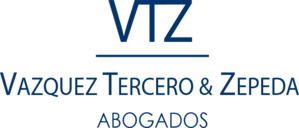- within Corporate/Commercial Law and Real Estate and Construction topic(s)
I. Introduction
On this day, the Tax Administration Service (SAT) published the Third Amendment to the Miscellaneous Tax Resolution for 2025, which modifies, adds, and repeals several tax rules. This amendment introduces significant changes concerning tax procedures, taxpayer obligations, and criteria for the application of rules. These changes will become effective the day after publication.
II. Amendments to Glossary and Definitions
Update of Acronyms and Definitions
The amendment updates the Glossary by including, under Section II, item 55, a reference to the acronym "RFA", which stands for the Administrative Facilities Resolution for taxpayers in specific sectors for 2025. Additionally, Section III incorporates item 15, defining the "Guidelines for Implementing Plan Mexico."
III. Incorporation of a New Chapter on Plan Mexico
Creation of Chapter 11.15
Chapter 11.15 is added to establish Rules 11.15.1 through 11.15.4. These rules implement the Decree granting tax incentives to support the national strategy known as "Plan Mexico," aimed at promoting new investment projects.
Registration Requirements for Plan Mexico Tax Incentives
Rule 11.15.1 outlines the documentation and registration requirements for taxpayers opting to apply the incentives under the Decree published on January 21, 2025, including those related to immediate deductions, training, and innovation expenses.
For immediate deductions on investments in new fixed assets, taxpayers must retain the following documentation:
- Accounting journal entry (póliza contable)
- Working papers
- Proof of acquisition
- Original investment amount and its inflation adjustment
- Deduction percentage and corresponding amount
- Description of how the asset relates to the taxpayer's main business activity
- Specific process or operation in which the asset was used
- Fiscal year in which the deduction was applied
Tax Liability for Non-Compliance
Taxpayers who apply these incentives but fail to meet the relevant requirements must pay the tax difference between the amount deducted under the incentive and the amount they would have been entitled to deduct without applying the benefit, in accordance with the Income Tax Law (Ley del ISR).
Procedure for New Taxpayers
Rule 11.15.3 applies to taxpayers who begin operations in the fiscal years 2025 through 2030. If they choose to apply additional deductions for training or innovation, they must calculate the incentive based on the amount spent in the year operations begin, treating this as an increase in eligible expenses.
Proof of New Fixed Assets
To claim immediate deduction, taxpayers must demonstrate that the acquired fixed assets are new. Acceptable documentation includes:
- CFDI (digital tax receipt) dated between January 22, 2025, and September 30, 2030.
- Bank statement showing payment.
- Accounting journal entry.
- Contract detailing the asset's characteristics, origin, and physical condition.
- Documentation describing the type of asset, its relevance to the taxpayer's business, and the specific process in which it was used.
- For imported assets, proof may include: a CFDI issued by a foreign resident (as per Rule 2.7.1.14), import declaration and annexes, and the corresponding bank statement.
For first-time use in Mexico, supporting documentation must prove that the asset's useful life does not exceed two years.
The content of this article is intended to provide a general guide to the subject matter. Specialist advice should be sought about your specific circumstances.





